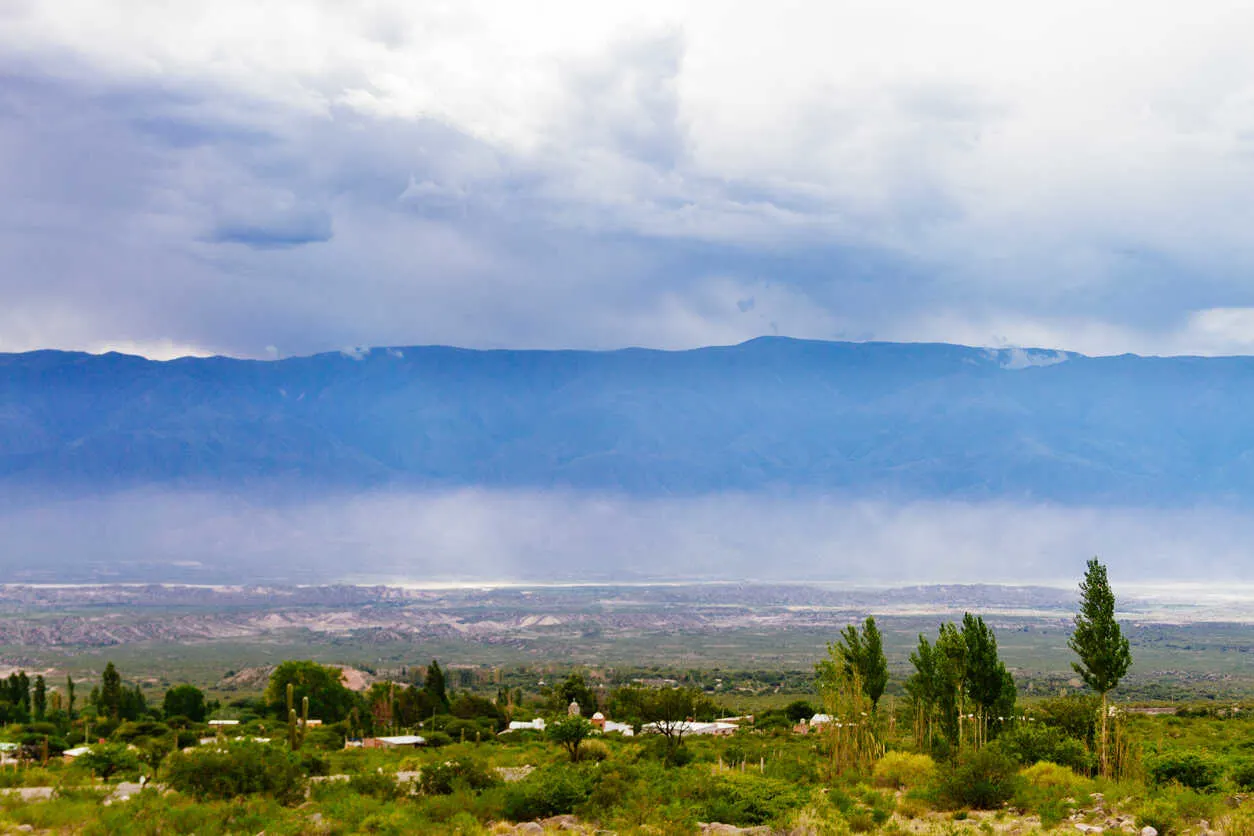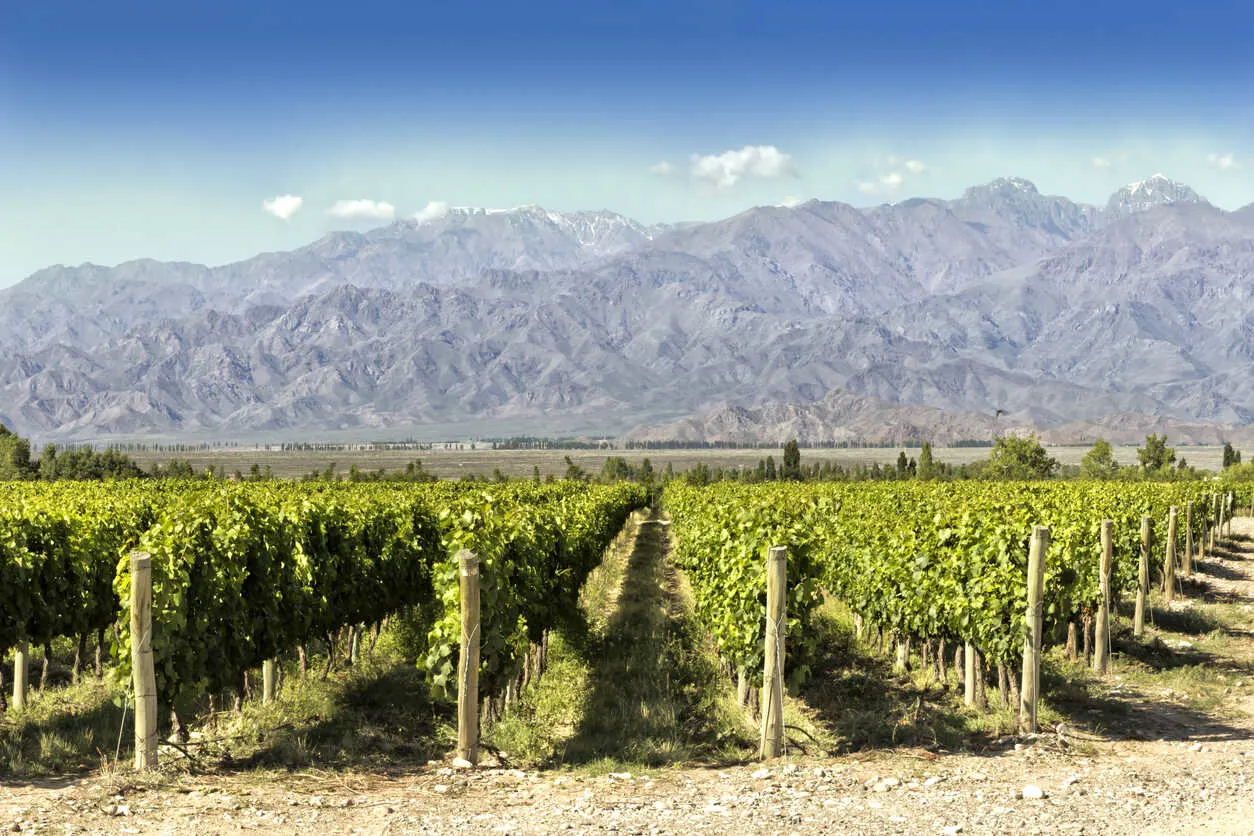Raw, Romantic, Untamed: Life in Argentina’s Wild West
5 min readAfter a nearly five-hour drive bumping along from Salta through the winding Bishop’s Pass, reaching more than 10,000 feet in altitude—the road cloaked in fog, or reflecting blinding sunlight—we arrived at the river. A flat tire had deterred us, so we raced to make up the time and reach our mountain refuge.
Could we cross the river? We weren’t sure. We hadn’t been able to cross by car in four months. Up till now, it had been impassable—except on foot over a hanging bridge. But it was late. We were tired. We plunged in with the 4×4 pickup… and made it to the other side, dripping muddy water on the dusty road.
It was too late, though. By the time we arrived, the originarios (originals, as the indigenous people are known) had burned down our cabin and ripped up several kilometers of pipeline. We’d been warned… and still hadn’t been able to stop them.
I’d spent much of my life in Paris… London… LA… Baltimore. But this was the wild west of Argentina. Rugged, spectacularly beautiful… with 250% inflation and a war of originarios vs. landowners like us.
A year ago, my husband, Adrien, was offered the opportunity to run the farmlands my father had acquired over the years in Argentina. Adrien had lived in Colombia for several years learning about farming and sustainable development. In Baltimore, he had a burgeoning food truck business (serving the sweet and savory crepes of his French homeland).
For Adrien and me, the opportunity was irresistible—a new challenge that appealed to our sense of adventure. So Adrien sold his business, I put my performing career aside, and off to Argentina we went.
In all sorts of beautiful, welcoming, culturally rich, saner places around the world, you can live well from $2,000 a month (all in, housing included). Sign up for our free daily IL Postcards e-letter and we’ll immediately send you a free report on the WORLD’S # 1 RETIREMENT HAVEN— plus 9 more spots you should have on your radar. Each day, you’ll earn about the best places to move to, retire, travel, buy real estate, and enjoy a good life for less, overseas.
By submitting your email address, you will receive a free subscription to IL Postcards and special offers from International Living and our affiliates. You can unsubscribe at any time, and we encourage you to read more about our Privacy Policy.
We now split our time between two farms in the Calchaquí Valley: San Martín and Gualfín. In San Martín, sharecroppers raise onions and peppers. Both of the ranches raise cattle. But at Gualfín, we also grow grapes, which we turn into pure high-altitude Malbec—called Tacana— for Bonner Family Wines (more on that below).
The Calchaquí Valley, located in the northwest of Argentina, is a region that crosses the provinces of Catamarca, Tucumán, and Salta. Getting to our ranches requires taking a plane to Salta from Buenos Aires (two hours), then driving around five hours along unpaved, winding roads. But it’s a journey well worth it. The ranches are surrounded by fields of alfalfa and corn and beautiful mountainous landscapes that change with the light throughout the day.
About eight workers are employed yearround on each farm. During busy times, like the grape harvest, day workers join the ranks.
Each farm is home to about 25 families, which comes to around 100 people. Those who don’t work for the farm raise their own crops and animals. In return, they’re expected to pay a portion of their harvest to the owners as rent.
At Gualfín, the originarios claim the land is theirs and refuse to pay. We support them gratis… because we have no choice. We don’t mind that so much, but they also burn our buildings and destroy our corrals.
San Martín is a peaceful, bucolic place. The people are friendly. The climate is too. Up the road is the town of Cachi, where people from the city of Salta used to go to spend a quiet, healthy winter in the sun.
Gualfín, or legendary Gualfín as I like to call it, is another story. It’s a ranch of hundreds of thousands of acres over rough terrain, nestled in the majestic Andes mountains at an altitude of 9,000 feet. There are Inca ruins hiding in the stones, a volcano, and a cultural problem which has and could again turn violent at any moment.

On high-desert farmlands, this couple found a life free from the strictures of the Western world.|©iStock/simonmayer
My husband is learning about a new kind of farming; we’re talking windy, high altitude, desert farming. Cows graze over rocky cerros in search of nutrient-rich pasture to fatten their thin frames, and Malbec grapes fight the elements of wind, sun, and altitude to produce the sweetest nectar you’ll ever taste—black as pitch and thick as blood.
As I’ve mentioned, both farms are remote, between four and six hours along mostly dirt roads from Salta, the closest city. There, we’ve rented a small flat where we spend downtime away from the ranches. It’s in the middle of a busy street, with a balcony overlooking the San Francisco Church and the San Bernardo Mountains. Across the street is a fine steakhouse, where we can share a steak and a salad, a bottle of wine, and even dessert for about a third of the price in the US.
Despite being so far from home, we do not lack for social engagements. The Valley attracts its own brand of fascinating people—winemakers, chefs, landowners, artists, and influencers. Wine tasting evenings, asados, and dinners are regular events on our social calendars. Just yesterday we received guests for lunch from Chile. They arrived by helicopter.
“Wow, it’s beautiful here,” gasped the woman as she exited the chopper. “Why would you ever go anywhere?”
As for me, a singer and performer, my career has taken a surprising turn, and I find myself invited to appear in local clubs in Salta. A regular engagement at the Casa Moderna, a wine bar and luxury imported goods shop, attracts a varied crowd of all ages. They follow me on Instagram, posting photos and videos of the show.
I’ve beefed up my Spanish repertory, adding boleros, a type of Cuban music in simple triple time, and Argentine folklore tunes into my mix of French chansons and American Standards. The audience will often sing along.
When I broke out with Edith Piaf ’s “La Vie En Rose” toward the end of my set last week, a lady in the audience clasped her hands together. “Ahhh! I love this one,” she said. During the chorus, they all joined me with “la, la, la, la, la.”

Malbec grapes fight the elements of the wind, sun, and altitude to produce sweet nectar.”|©iStock/Edsel Querini
Adrien and I already spoke pretty good Spanish. It wasn’t so much the language we needed to master, but the particularities of the Argentine lingo in the Valley. For instance, they use vos for tu, and many words are different than in other South American countries, like pileta instead of piscina for pool. And, in this area, almost every word can be made into a diminutive—aguita for water, chiquita for little, cafecito for coffee, etc.
What’s harder to figure out are the codes and the cultures. Each ranch, remote from the rest of the world, has its own. And the people and their families are often complicated.
We don’t know why our cabin was burned. We suspect it was a warning from the originarios not to mess with them; they were staking their claim on the land. It’s a situation we have little control over. With the current laws in Argentina, we can’t kick them off the property.
The social hierarchy too is new to us. Almost feudal. The local people bring their problems to us—financial, matrimonial, medical—looking to us to help solve them.
Last week, one of the wives of an employee came to the door. She’s a lady of perhaps 70, pretty with long dark hair. She wore a sweatshirt, jeans, sneakers, and carried a wide brimmed hat with her.
“Señora,” she began, “I need to tell you about a very personal matter.”
“Yes?”
“Things are going very badly with my husband. It’s been this way for a while, but it’s just worse and worse.”
“I see.”
“Well, I know he’s seeing another woman. But when I confront him about it, he lies and tells me I’m making it up. But I know it’s true.”
A tear rolled from her eye. Poor lady. I felt bad, but what could I do?
She looked at me.
“It’s not an easy life here… but it’s a full life.”
“Will you ask the jefe to talk to him, please?” she said. “If my husband wants to go off with another woman, then so be it. But it’s that he’s lying and telling me it’s not true. I can’t go on like this.”
The jefe is my husband.
I had no idea how that would solve her problem, but I promised I would ask him.
One thing we’ve learned: Don’t jump to conclusions. Given cultural differences, it can take a long time to understand the truth of a matter.
By playing the long game, we’ve begun to settle into a peaceable coexistence with the originarios. Now, they mostly keep to themselves… except when they want to use our corral or pasture their cows with ours.
Adrien is going to be starting a tourism business at Gualfín, bringing small groups in for exclusive tours. We hope this will give the originarios a way to sell their ponchos and other handiworks and allow them to join the modern commercial world, such as it is.
It’s not an easy life here. It’s raw, untamed. But it’s a full life—one that frees you from the frantic time schedules, strictures, and expectations of the western world. There’s adventure, intrigue, new challenges… and a majestic beauty unlike anything I’ve seen anywhere else.
All you have to do is think like an Argentine.
And that, we’re still figuring out…
Try an Andes-Grown Malbec
At our Gualfín ranch, on a vineyard called Pucarilla, we grow Malbec grapes at high altitudes. Our neighbor at Tacuil, Raul Davalos, then makes them into a wine called Tacana. It’s intense, fruity, and smooth; read all about it here. If you’d like to try it, I’ve included a special offer. —Mariah Bonner
Sign up for our free daily IL Postcards e-letter and we’ll immediately send you a free report on the WORLD’S #1 RETIREMENT HAVEN—plus 9 more of the most desirable and very affordable destinations where you can upgrade your retirement right now. Each day you’ll learn about the best places to retire, travel, buy real estate and enjoy life overseas.
By submitting your email address, you will receive a free subscription to IL Postcards and special offers from International Living and our affiliates. You can unsubscribe at any time, and we encourage you to read more about our Privacy Policy.



